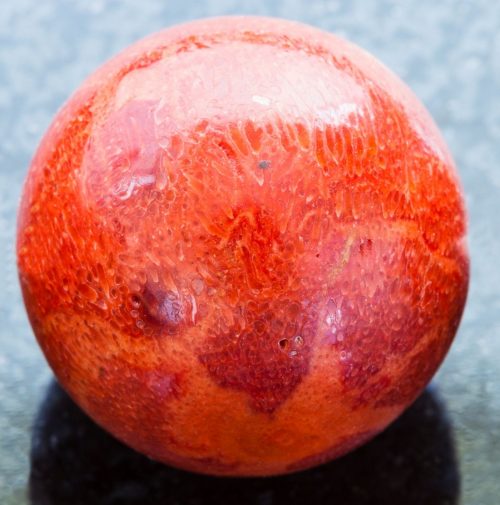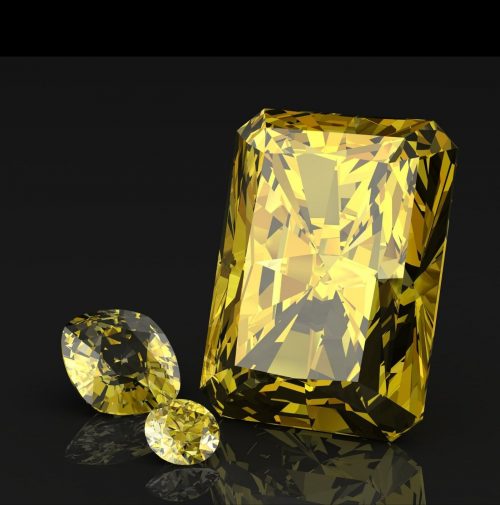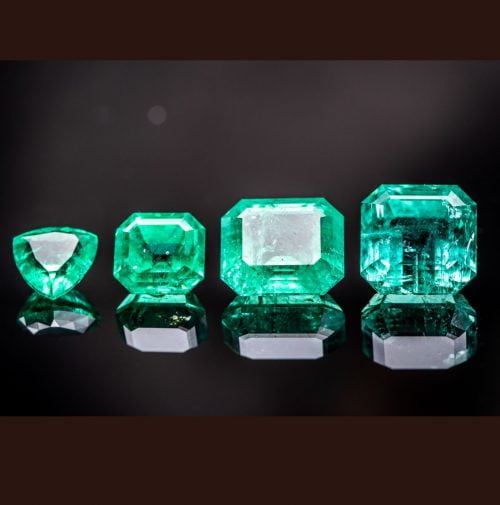Gemstone Remedies: What to Wear for Each Planet
Welcome to your complete guide on choosing stones for planetary influence. I will help you align specific stones with celestial energies for personal well-being.
My goal is to provide clear, authoritative information. You will learn how to select powerful astrological aids that truly work for you.
It is vital to understand that nearly all stones available in today’s jewelry market have undergone some form of enhancement. These processes can significantly affect a stone’s properties and value.
I am committed to giving you transparent facts about these common treatments. This knowledge is essential for making a smart and effective choice.
By the end of this guide, you will feel confident. You will know how to find authentic stones that fit both your spiritual goals and your budget.
Key Takeaways
- Specific stones are linked to different planets and their energies.
- Understanding these connections can enhance personal well-being.
- Most stones on the market have been treated or enhanced in some way.
- The type of treatment can impact the stone’s effectiveness and value.
- Knowing which treatments are acceptable is key to a good purchase.
- This guide will help you make an informed and confident selection.
Introduction to Gemstone Remedies and Planetary Influence
For centuries, cultures worldwide have looked to the stars and the stones beneath their feet to find harmony. This ancient practice links specific minerals to celestial bodies, creating a path for personal alignment. Vedic astrology is one tradition that deeply explores this connection.
In my experience, these astrological aids function by channeling a planet’s unique vibrational energy. The selected stone is worn in direct contact with the skin, often as a ring or pendant. This direct contact is believed to be the most effective way to create an energetic link.
Each planet governs different parts of our lives. Mars influences courage, Venus rules love, and Jupiter expands wisdom. Wearing the corresponding gem is thought to strengthen these positive influences.
The effectiveness of this approach depends on two key factors. You must select the correct mineral for your astrological chart. You also need to understand the quality and authenticity of the piece you choose.
Traditional practitioners often prefer completely natural, untreated gemstones. They believe these stones hold the purest planetary energies. However, finding such specimens in today’s market is challenging and can be costly.
My guidance combines respect for this ancient wisdom with practical information about modern enhancements. This knowledge empowers you to make choices that are both spiritually sound and financially smart. Understanding the reality of the market is the first step toward a successful selection.
The Importance of Gemstone Remedies in Modern Jewelry
The modern jewelry industry presents a unique scenario for those pursuing celestial connections through carefully selected stones. Today’s consumers face the challenge of balancing traditional astrological requirements with contemporary market realities.
I’ve observed that enhancement processes are nearly universal in current jewelry production. These methods have become so established they might be considered industry traditions. Jewelers routinely apply treatments to refine natural minerals.
Raw stones extracted from the earth rarely display perfect characteristics. Transforming them into wearable pieces requires cutting, polishing, and various refinement techniques. Colors are enhanced, imperfections removed, and clarity improved through these processes.
In my assessment, the key lies in finding where spiritual effectiveness meets practical availability. Not all treatments compromise a stone’s energetic properties. Some methods are minimally invasive and widely accepted.
The value of an astrological aid isn’t automatically reduced by enhancement. Heat treatment, for example, often mirrors natural geological processes. Understanding these distinctions is crucial for making informed spiritual and financial decisions.
Modern markets offer both opportunities and challenges for seekers of planetary alignment. Knowledge about treatments becomes essential for successful integration into personal practices.
Overview of Gemstone Treatments in the Market
Modern mineral treatments represent both ancient traditions and current industry practices. I observe that enhancement methods are nearly universal in today’s jewelry market. Most stones available to consumers have undergone some form of treatment.
Humans have enhanced natural minerals for thousands of years. This historical context shows that treatments are not modern deceptions but established traditions. Transparency about these processes remains crucial for informed purchasing.
| Treatment Type | Common Stones | Acceptance Level | Key Considerations |
|---|---|---|---|
| Heat Treatment | Citrine, Aquamarine | Widely Accepted | Enhances color, mimics natural processes |
| Dyeing & Bleaching | Various porous stones | Controversial | Significantly alters appearance, affects value |
| Fracture Filling | Emerald, Diamond | Market Dependent | Improves clarity, requires special care |
| Diffusion | Ruby, Sapphire | Generally Disclosed | Surface-level color enhancement |
Understanding common stone treatments helps you ask the right questions before purchase. Different treatments impact both appearance and potential properties.
Market awareness empowers your choices. You can balance spiritual needs with practical considerations when selecting stones for personal use. Knowledge transforms market challenges into confident decisions.
Authentic Versus Treated Gemstones
There’s a critical distinction between genuine stones that have been improved and completely artificial creations. Many people mistakenly believe that any treatment automatically makes a gemstone fake. This is a fundamental misunderstanding of how the mineral market operates.
A real, earth-mined stone can undergo various treatments while remaining authentic. Blue aquamarines provide a perfect example. They’re often heated to remove green and yellow hues, yet the resulting stone is still genuine.
The real difference lies between treated gemstones and synthetic ones. Laboratory-created stones are man-made from start to finish. They lack the natural geological history of earth-mined minerals, regardless of enhancements.
Not all treatments carry equal weight in the market. Some processes, like heating, are widely accepted. They often mimic what nature could have done underground. These treatments have minimal impact on price and value.
Other enhancements can significantly affect a stone’s price and acceptance. The key question isn’t simply “treated or untreated.” It’s about which processes preserve the mineral’s natural integrity while making it accessible. Knowledgeable buyers understand that many treated gemstones offer excellent value for their purpose.
Common Gemstone Treatments Explained
Two of the most common enhancement processes in today’s market involve thermal and chemical approaches to improving appearance. Understanding these methods helps you evaluate quality and make informed choices.
Heat Treatment and Its Effects on Color
Heat treatment is a widely accepted process that alters mineral characteristics. This method can lighten, darken, or completely transform colors. It often improves clarity as well.
Many experts view this treatment as a natural extension of geological formation. The heat applied mimics what could have occurred underground. Changes from this process are typically permanent.
This makes heat-treated stones stable for long-term wear. The enhanced colors won’t fade with normal use.
Dyeing, Bleaching, and Their Impact on Value
Dyeing involves applying color agents to change a stone’s appearance. This process intensifies desired hues or creates completely new colors. Bleaching uses chemicals to lighten stones and create uniformity.
You can identify dyed minerals by looking for color concentration around cracks. Dye penetrates through surface openings, leaving telltale signs. This treatment significantly affects market value.
Unlike heat treatment, dyeing is considered more artificial. The results can be unstable over time.
| Treatment Type | Process Description | Color Impact | Value Effect | Stability |
|---|---|---|---|---|
| Heat Treatment | Controlled heating to alter structure | Permanent enhancement | Minimal reduction | Highly stable |
| Dyeing | Color penetration through surface | Can fade over time | Significant reduction | Variable stability |
| Bleaching | Chemical lightening process | Creates uniform appearance | Moderate reduction | Requires careful maintenance |
Choosing between these treatments depends on your priorities. Heat treatment preserves natural structure while enhancing beauty. Dyeing offers affordability but with potential durability concerns.
Deep Dive into Heat Treatment Methods
Heat treatment stands as one of the most established methods for enhancing mineral characteristics in the jewelry trade. This process applies controlled temperature to transform appearance and internal structure.
The technique has become standard practice for many popular stones. It produces results that are both permanent and visually appealing.
How Heat Enhances Gem Color and Clarity
I’ve observed that thermal processing works at the molecular level to reorganize color-causing elements. This reorganization produces more desirable hues while improving transparency.
The heat also dissolves needle-like inclusions known as silk. This dual action enhances both color and clarity simultaneously.
Popular Gems Undergoing Heat Treatment
Several well-known minerals routinely receive this enhancement. Citrine, aquamarine, and tanzanite represent prime examples.
Heating transforms aquamarine by removing yellow and green tones. The result is a pure blue stone that dominates today’s market.
Most citrine available originates from heated amethyst. This treatment creates vibrant yellow and orange hues that are rare in nature.
| Mineral Type | Heat Treatment Effect | Market Prevalence | Resulting Color |
|---|---|---|---|
| Aquamarine | Removes yellow/green hues | Nearly all specimens | Pure blue |
| Citrine | Enhances yellow tones | Most market material | Vibrant yellow/orange |
| Tanzanite | Eliminates brown hues | Virtually all stones | Blue-to-violet |
These thermal enhancements are typically undetectable and permanent. They make these stones practical choices for personal use.
Understanding this heat treatment process helps set realistic expectations about availability and pricing. Knowledge empowers confident selection in today’s market.
Irradiation and Diffusion Techniques in Gemstones
Beyond traditional heat treatment, modern laboratories employ sophisticated irradiation and diffusion techniques. These advanced methods create colors that rarely occur naturally in minerals.
Both processes require specialized equipment and expertise. They represent the technological evolution of enhancement practices.
Understanding the Irradiation Process and Regulations
Irradiation exposes stones to controlled radiation to alter their atomic structure. This treatment permanently changes the color by rearranging color centers within the crystal.
Sometimes combined with heat, this method produces vibrant hues. Blue topaz provides the classic example—always irradiated from white to blue.
Regulatory bodies like the US Nuclear Regulatory Commission ensure safety. They set strict limits on residual radioactivity levels. This makes irradiated stones completely safe for wearing.
Diffusion Treatments in Ruby and Sapphire
Diffusion involves applying chemicals to the stone’s surface before heating. Color-causing elements like beryllium penetrate the outer layers during this treatment.
Both ruby and sapphire commonly receive this enhancement. The process creates rich colors in otherwise pale specimens.
However, some diffusion only affects the outermost surface. Scratches or chips can reveal the original pale color beneath. This makes the enhancement vulnerable to damage.
For astrological purposes, I consider deeply penetrated irradiation more stable than surface-level diffusion. The permanence of the color change matters greatly in effective mineral selection.
Fracture Filling and Laser Drilling in Diamonds
Diamonds require unique treatment approaches due to their exceptional hardness properties. Natural fractures occur in most minerals, but they significantly reduce desirability and value. Fracture filling addresses these imperfections using substances like glass, wax, or oil.
These fillers mask flaws by creating optical continuity. The process makes fractures less visible to the naked eye. However, these fillings can be damaged by heat during jewelry repair.
Laser drilling represents a more invasive technique used exclusively for diamond enhancement. The stone’s durability allows it to withstand the high heat produced by laser technology. This method targets internal inclusions that affect clarity.
The laser drilling process involves creating microscopic channels to reach flaws. Heat or acid then dissolves the imperfection. Typically, the resulting hole undergoes additional fracture filling with glass or resin.
I must caution that multiple drill holes can compromise structural integrity. The diamond becomes more vulnerable to damage during setting or wear. Excessive treatment may affect long-term durability.
Detection requires careful magnification examination. Look for tiny drill channels extending from the surface. Glass filling may show flash effects under different lighting conditions.
For astrological purposes, I generally avoid recommending diamond with these treatments. The extensive alteration may compromise both structural and energetic properties valued in traditional practices. Understanding these techniques helps you make informed decisions about clarity enhancements.
Stabilization and Impregnation Processes for Fragile Gemstones
The journey from a raw mineral to a durable piece of jewelry sometimes requires a crucial step of reinforcement. This process, known as stabilization or impregnation, involves infusing a fragile stone with a colorless substance like wax, polymer, or plastic. The goal is to fill microscopic pores and surface cracks, significantly boosting durability.
Some beautiful minerals are simply too delicate for regular wear without this intervention. I consider this treatment not an option but a necessity for specific material. It is the only practical way to make them functional in jewelry.
Turquoise is a prime example of a soft, porous stone. Left untreated, it absorbs skin oils over time, often changing its prized blue color to a less desirable green. Stabilization prevents this absorption, preserving the color and integrity of the stone.
Ammolite, an iridescent fossil, is another material that demands this treatment. Its delicate structure would crack and deteriorate quickly without a protective resin coating. The industry widely accepts stabilized versions of these gemstones because the alternative is impractical.
This type of treatment enhances the stone‘s structural integrity and can improve its apparent clarity by creating a smoother surface. It is a preservative measure, much like varnishing wood, designed to protect the natural beauty of these unique gemstones for long-term enjoyment.
Analyzing the Impact of Treatments on Gemstone Value
When investing in stones for personal use, understanding how different treatments affect their market value is crucial. Not all enhancement processes impact the final price equally. Some are widely accepted, while others can dramatically reduce a stone’s worth.
Price Implications of Various Treatments
I assess treatments like heating as having minimal impact on value. This process mimics natural geological events. It is considered an extension of nature’s work.
In contrast, methods like dyeing or diffusion are more artificial. They transform common colors into rare, desirable hues. This creates a significant price gap compared to naturally occurring colors.
For example, a high-quality, untreated ruby can be three to five times more expensive than a heat-treated one. Natural rarity always commands a premium in the market.
Evaluating Gem Clarity and Market Value
A stone’s clarity must be evaluated alongside its treatment history. A treated gem with perfect clarity may be worth less than a slightly included but completely natural specimen.
The market applies clear value multipliers based on the type of treatment.
| Treatment Type | Typical Value Reduction | Market Perception |
|---|---|---|
| Heating | 20-30% | Widely Accepted |
| Dyeing / Glass Filling | 70-90% | Significantly Lowers Value |
This knowledge empowers your choice for astrological remedies. You can decide between premium, untreated stones or more accessible, treated alternatives. Understanding these distinctions is key to a smart investment.
Quality Grading: From Untreated to Enhanced Gemstones
To navigate the complex market of enhanced minerals, industry professionals have developed specific grading systems. These systems provide a clear framework for understanding the level of treatment a stone has received.
Jade and emerald have particularly well-established classifications. Knowing these grades is essential for making an informed purchase.
Grading Systems and Their Relevance in Jade and Emerald
Most jade on the market has undergone some form of enhancement. Traders use a letter-based system to indicate the extent of these treatments.
This system helps buyers quickly assess quality and value.
| Jade Grade | Treatment Description | Key Characteristics |
|---|---|---|
| A Grade | Untreated; may have a wax coating for luster. | Considered the most natural state. |
| B Grade | Acid-soaked to remove brown areas, then impregnated with polymer. | Improved transparency but lower value. |
| C Grade | Contains dye to enhance or change color. | Look for concentrated dye in fractures. |
| B+C Grade | Combines acid treatment with dyed polymer. | Represents the most extensive enhancement. |
For astrological purposes, I recommend seeking “A” grade jade. It represents the least altered option available.
When evaluating emerald gems, understand that nearly all contain a clarity enhancement. Fracture filling with colorless oil or resin is standard practice.
This treatment minimizes the visibility of natural inclusions. It is widely accepted and has a minimal impact on value.
Be cautious, however, if the filler contains dye. This represents a more significant intervention that should be fully disclosed by the seller. Understanding these grading systems empowers you to select stones that align with your intentions.
Choosing the Best Gemstone Remedies for Your Needs
Making a final choice for your planetary needs requires a practical framework. I guide you through a balanced approach. This method considers astrological requirements, treatment acceptance, budget, and personal preference.
Think of selecting a stone like buying a house. You need to know its full history, including any enhancements. This information is vital for understanding its properties and long-term care.
Always prioritize sellers who offer complete transparency about any treatment. Responsible dealers disclose everything, even uncertainties. They explain what this means for your jewelry maintenance.
My professional advice is to start with a consultation. Speak with your astrologer to identify the correct stones for your chart. Then, research which treatments are acceptable within your tradition.
The best planetary remedies often involve compromise. Completely natural stones can be financially out of reach. Understanding which enhancements have minimal impact allows for an informed, spiritually aligned choice within your budget.
I find that heat-treated versions of stones like ruby or sapphire can be effective alternatives. This is especially true when they are properly energized according to your practice. The ideal gemstone is one you can afford, that meets quality standards, and that you feel connected to.
Gemstone Remedies for Each Planet: A Buyer’s Guide
Navigating the market for planetary stones requires clear, practical advice. I will guide you through selecting the right piece for each celestial body, focusing on realistic expectations for treatments.
For the Sun, the primary stone is ruby. You should know that nearly all ruby available undergoes heat treatment. Many also have fractures filled with leaded glass. Seek stones certified as heated-only for the best results.
The Moon connects to pearls. Accept that most pearls are bleached and dyed to enhance their luster. Finding completely untreated pearls is exceptionally rare.
Mars aligns with red coral, a common gemstone often found untreated. Always verify its authenticity, as imitations are widespread in the market.
For Mercury, the traditional choice is emerald. Oil or resin filling is standard practice. Choose stones with colorless fillings and avoid any with dye.
Jupiter’s energy is channeled through yellow sapphire. Like ruby, most sapphire is heat-treated. This is an acceptable enhancement. Avoid stones with surface diffusion.
Venus can be honored with a diamond. Treatments in diamond are rare but possible. I recommend laboratory verification for any diamond purchase to check for advanced treatments.
For Saturn, blue sapphire is key. Heat treatment is the norm and is acceptable. Steer clear of glass-filled or diffusion-treated stones for your jewelry.
Consider alternatives like citrine or white topaz. These offer accessible options. Quartz varieties like smoky quartz are generally untreated. This knowledge empowers you to make a confident and informed choice.
: Tips for Maintaining Treated Gemstones
The longevity of enhanced minerals depends heavily on proper maintenance techniques tailored to their specific treatments. Different enhancement processes create unique vulnerabilities that require specialized care protocols.
Care for Coated and Heated Stones
Heat-treated minerals like ruby and sapphire are generally stable. Their enhanced color is permanent and won’t fade with normal wear. These stones require no special care beyond standard jewelry maintenance.
Coated stones demand more careful handling. Surface treatments can scratch or wear away with abrasion. Avoid ultrasonic cleaners and harsh chemicals that damage the delicate surface coating.
Wax-filled minerals like turquoise and jade need protection from heat. Prolonged exposure can melt the wax impregnation. Keep these pieces away from direct sunlight and high temperatures.
Maintenance Strategies for Long-Term Brilliance
Fracture-filled stones require cautious cleaning. High temperatures and chemicals can damage the filling material. Avoid steam cleaning and jewelry repair involving heat near these pieces.
Wax coatings prevent discoloration from skin oils. Periodically clean both the stone and your skin to prevent oil buildup. This maintains the original color and appearance.
| Treatment Type | Cleaning Method | Special Precautions | Durability Level |
|---|---|---|---|
| Heat Treatment | Standard jewelry cleaning | None required | High stability |
| Surface Coating | Soft cloth, mild soap | Avoid abrasives | Moderate vulnerability |
| Wax Filling | Dry cleaning only | Protect from heat | Requires careful handling |
| Fracture Filling | Lukewarm water | Avoid chemicals/heat | Moderate stability |
Store your jewelry separately to prevent scratching. Remove rings during activities involving impact or chemicals. Proper maintenance ensures your enhanced minerals retain their beauty for decades.
Trusted Sources and Lab Testing in the Gem Trade
Third-party certification from reputable laboratories offers the transparency that both traders and consumers desperately need. As someone involved in this field, I emphasize knowing common treatments to ask the right questions before purchasing.
Acquiring detailed information from suppliers can be challenging. Sometimes even advanced lab work cannot definitively determine treatment status. This is why working with trusted sources who voluntarily disclose enhancements is essential.
The Role of Laboratory Verification
Reputable gemological laboratories like GIA, AGL, and Gubelin provide certificates that document detected treatments. These reports confirm whether a mineral is natural rather than synthetic. They also disclose enhancements that might affect properties.
In my practice, I recommend learning basic detection techniques. Concentrated color in cracks and fissures often indicates dye. Look for uneven color distribution as a warning sign.
Gas bubbles may be visible under magnification in glass-filled diamonds. Darkfield illumination can reveal blue and orange flashes in treated rubies. Evidence of cobalt diffusion in blue sapphire shows anomalous reactions under specialized filters.
Trusted sources include established jewelers with credentials and dealers who provide laboratory certificates. Suppliers offering return privileges if undisclosed treatments are later detected demonstrate integrity. Laboratory verification provides confidence that your investment comes from authentic earth-mined materials.
Conclusion
The path to selecting appropriate stones for planetary alignment requires balancing tradition with modern market realities. I’ve guided you through the complex world of mineral enhancements, providing authoritative information for informed decisions.
Understanding common treatments empowers your selection process. Heat treatment stands as the most accepted enhancement, mimicking natural geological processes. This approach creates permanent results while preserving the stone’s integrity.
Transparency from sellers remains crucial for successful choices. Laboratory verification provides confidence in your investment. Consult with spiritual advisors about treatment acceptability for your specific needs.
Remember that treated minerals aren’t fake—they’re genuine earth materials enhanced for durability and beauty. Knowledge transforms market challenges into confident decisions. Armed with this understanding, you can navigate the mineral market with assurance.








Connect me